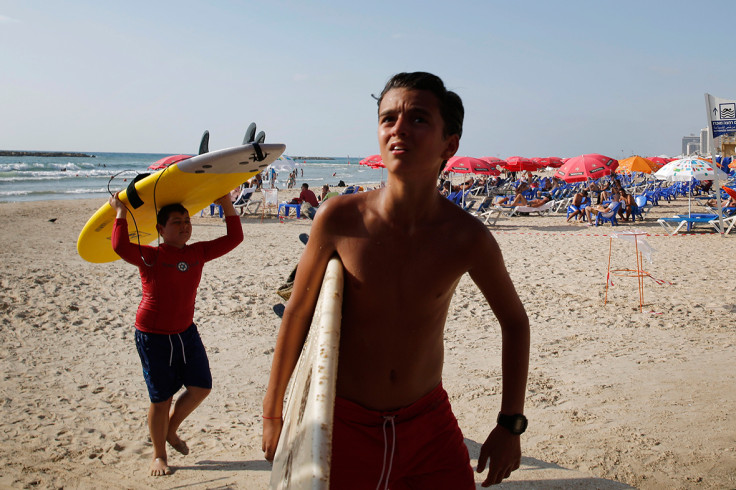Inside Israel: The Russians are Coming to Rescue Tel Aviv Tourism from Gaza War Slump

Tel Aviv is seeking to boost the numbers of Russian tourists visiting the city as they have a stronger stomach for the political and military status quo in Israel, according to a senior official at the city's municipality.
"When we look at numbers, Russia is our fastest growing market," said Mira Marcus, international press director at Tel Aviv Municipality.
"It's a huge potential and actually, specifically about this, they're not so deterred by military operations. We looked into surveys and the places that they go to. They're definitely attracted by the beach, the sun and it's a relevant market for Tel Aviv right now."
For Israel and its largest city, Tel Aviv, 2014 had looked set to be a record-breaking year but vast numbers of tourists cancelled their trips to the country after the government launched a military offensive against Hamas militants in Gaza in July.
Tel Aviv was attacked by rockets during the fighting, although no one died in the city as the result of a rocket attack.
Marcus told IBTimes UK the people of Tel Aviv were used to living with the chance that conflict could erupt, adding Russian visitors had shown a greater resistance to cancelling their trips to Israel's biggest city than other nationalities.
"We live it as something that might happen as part of our lives and we continue strategising and planning for the future and we see that the Russian market isn't affected by these events," she told IBTimes UK.
Marcus began working at Tel Aviv Municipality in March 2013, as the city's tourism industry recovered from the 2012 conflict between Israel and Hamas in Gaza.
On that occasion, Israel launched a campaign of aerial bombardment on the coastal enclave that lasted for eight days.
"When I started four months after [the air strikes], things were already back to normal," Marcus said. "Tel Aviv has a tendency to bounce back."
While the tourism industry took a hit in 2012, Israel's military offensive lasted for a little more than a week and did not involve a ground incursion of the Palestinian territory.
In contrast, the 2014 war endured for almost two months. It resulted in the deaths of more than 2,200 Palestinians, the vast majority of whom were civilians. Israel's army lost 66 soldiers in the fighting, while seven civilians were also killed.
Tel Aviv's hotel industry suffered a dramatic collapse over the summer, as international visitors cancelled their trips to the city amid sporadic bursts of rocket attacks and air-raid sirens. While a ceasefire was declared at the end of August, Tel Aviv is struggling to bring back tourists while the Gaza war is still fresh in their minds.
Marcus said: "It was a different situation. This time we had 50 days... We're trying to learn from what happened and we're trying to be optimistic about the bounce back, but we definitely know it's a different situation."
© Copyright IBTimes 2025. All rights reserved.






















